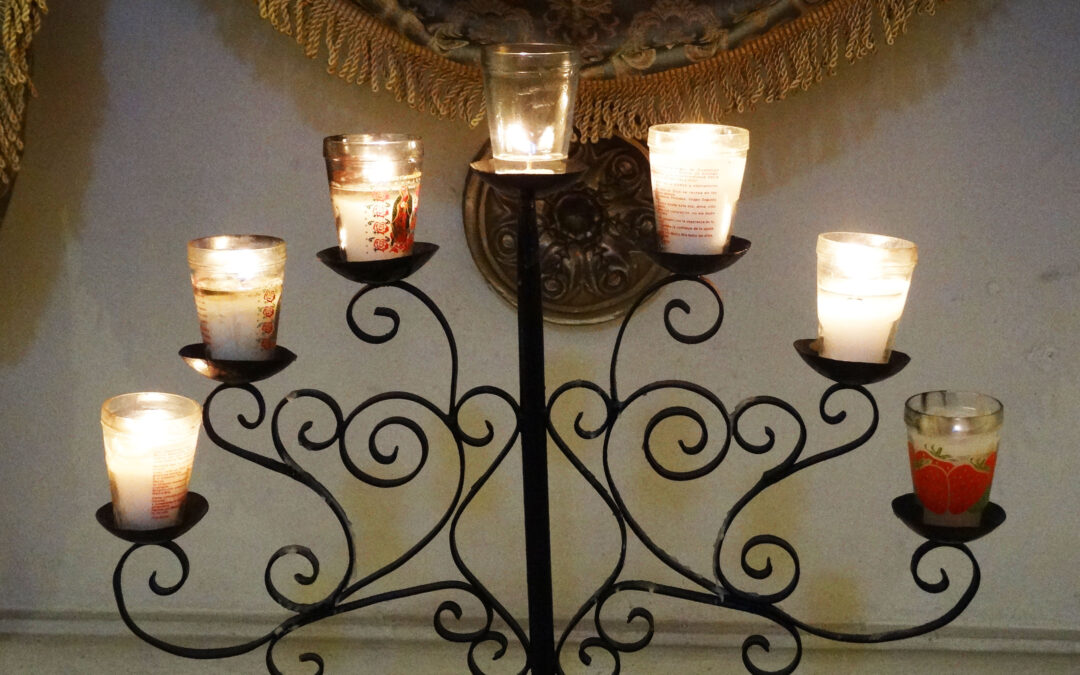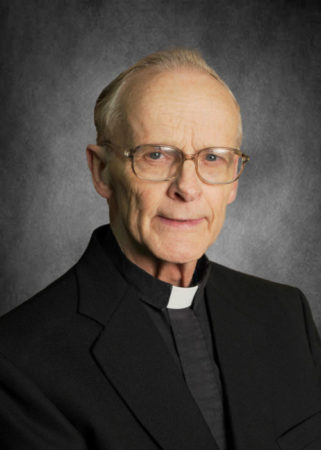By Fr. Harry Brown, C.PP.S.
As a farm boy (before I entered the high school seminary), I watched firsthand as my mom baked the bread, the whole process. Unless that grain of wheat falls to the ground and dies, it remains only a grain of wheat. But wow—when it dies, look what happens.
A seed must die before it can bring forth fruit. Yes, this is also true in our spiritual life. We followers of Christ know very well that any effort, any sacrifice, any penance and any giving up of comfort or convenience will definitely “bear much fruit.” How true this is when the effort is made out of love for Christ and our neighbors.
We know from St. John that Jesus had recently raised Lazarus from the dead. We also know that this event took place in Bethany, a small village just outside of Jerusalem. And remember that today’s Gospel takes place on Palm Sunday in Jerusalem. Thus, many Jews and non-Jews were in town for the big feast of Passover. So they escorted Jesus with palms and chanting.
Since Jesus came to save all people, he knew he had to die for all people. He knew also that his death would be among the most tortuous forms of death ever devised by anyone, yet Jesus refers to his death as his glorification—to be faithful to his Father. It would have been very easy for Jesus to simply walk away that night for a one hour trip to Bethany to be with Martha, Mary and Lazarus. But no, his mission was to save the world, not himself. Truly, like a seed planted in the ground, he had to die in order to live in a new way.
We see that this is the new covenant that Jeremiah tells us about in today’s first reading—a covenant written in our very hearts. It becomes part of us. Moreover, we need to realize that today’s Gospel is really and essentially a theological reflection on the cross, the cross of Jesus and ours. Help us to carry our cross, custom made for each of us.
Over 2,000 years ago, there happened a big spiritual bang! All of God’s love was concentrated in this event and action. That action was the death and resurrection of Jesus Christ. This big bang is not a theory, but a mystery we know to be the Paschal Mystery.
Now for a brief reflection on the third scrutiny, which also takes place on the Fifth Sunday of Lent. The scrutinies are rituals celebrated on the Third, Fourth and Fifth Sundays of Lent for those who will be baptized at Easter. They are meant to cleanse from sin and strengthen for the life of faith. They include a prayer for delivery from sin, readings from Scripture, a laying on of hands, and a blessing for the person being scrutinized.
Here the Gospel of St. John on the raising of Lazarus is the highlight of the three readings. The raising of Lazarus is definitely a sign of our Lord’s victory over death. It’s also a sign of hope for all of us. Every one of us wants to make the best of life. Indeed we love life, but we experience how brittle (very brittle) it is. We know there are people who try to live without any restraints. Seemingly they follow the philosophy of pagan Romans: “Let us eat and drink, for tomorrow we may die.”
In Ezekiel we have the famous vision of the “dry bones.” The Lord brings these bones back to life and breathes a new spirit in them. In the reading from Romans, St. Paul states that those who look at life only from the viewpoint of the flesh get nowhere. The Spirit dwells in you. Let the Spirit animate you.
St. John, the evangelist, places the Lazarus story just prior to the passion narrative. He remarks, “From that day on they planned to kill Jesus (John 11:53).” Indeed, this passage teaches that Jesus, calling himself the resurrection and the life, will die in order to inaugurate the resurrection of human beings. John suggests that we should put our faith in Jesus as many Jews did when they witnessed the raising of Lazarus. What a super amazing event! Does it affect our faith?
To view the full scripture reading, click here.
Fr. Harry Brown, C.PP.S., is in ministry at the Sorrowful Mother Shrine in Bellevue, Ohio.


